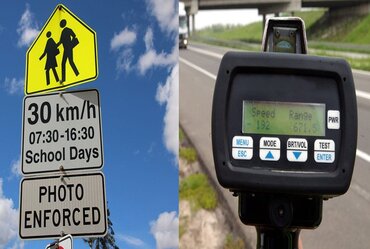Search

Getting pulled over for speeding is never a pleasant experience, and receiving a ticket can feel like both a financial and legal blow. However, a speeding ticket doesn’t automatically mean you’re guilty—you have the right to contest it. With the right approach, you can fight a speeding ticket and potentially have it reduced or even dismissed.
In this article, we’ll break down the steps you can take to fight a speeding ticket effectively, from understanding the citation to presenting your case in court.
Before you can contest a speeding ticket, it’s essential to review the citation carefully. Your ticket will contain crucial information, including:
Carefully inspect these details for errors or inconsistencies. For example, if the speed limit was incorrectly noted or the location is vague, this could be used to your advantage in court.
Traffic laws vary by state and municipality. Take time to research the specific law you’re accused of violating. Look up the statute number on your ticket through your local Department of Motor Vehicles (DMV) or traffic court website.
Understanding the legal language can help you identify loopholes or nuances that may apply to your situation. For instance, if your state allows a margin of error for speed detection devices, that might support your defense.
You generally have three options when responding to a speeding ticket:
If you believe the ticket was issued unfairly or you have grounds for defense, you should plead not guilty. This will give you a chance to present your case before a judge.
After pleading not guilty, you’ll be assigned a court date. Be sure to file your intent to contest the ticket by the deadline listed on your citation. Missing the deadline could result in additional penalties or a default judgment against you.
Some jurisdictions allow you to contest your ticket online or by mail, but attending in person may improve your chances of having the ticket dismissed or reduced.
The key to successfully fighting a speeding ticket is building a strong case. Depending on the circumstances, you may be able to use the following types of evidence:
You can also file a discovery request to obtain information about the officer’s speed detection equipment, training, and calibration records.
Here are some commonly used defenses in speeding ticket cases:
If radar, lidar, or pacing was used to detect your speed, you can challenge the accuracy of the equipment. Was it calibrated properly? Was the officer trained to use it?
If traffic was heavy, it’s possible the officer targeted the wrong vehicle. This is especially plausible if no identifying details (color, make, or license plate) were recorded.
In rare cases, you may argue that your speed was necessary due to an emergency, such as avoiding a road hazard or transporting someone in medical distress.
If the speed limit sign was missing, damaged, or hidden, you may argue that you were unaware of the speed limit and driving reasonably for the conditions.
When your court date arrives, dress professionally, arrive early, and bring all your documentation. Be respectful to the judge and avoid arguing emotionally. Stick to the facts and present your evidence clearly.
If the officer who issued the ticket doesn’t show up, your ticket could be dismissed automatically in some jurisdictions.
You can also negotiate with the prosecutor before your hearing. They may offer a plea deal that reduces the fine or eliminates points from your license in exchange for a guilty plea to a lesser offense.
If you’re not comfortable navigating the legal system alone, or if the ticket carries significant penalties (like license suspension or high insurance hikes), hiring a traffic ticket attorney may be worthwhile. A lawyer can:
Even if the lawyer charges a fee, it may be less than the long-term cost of increased insurance premiums or license penalties.
Whether your case is dismissed, reduced, or upheld, it’s important to take the experience seriously. If the court finds you guilty, make sure to:
On the other hand, if you win, take it as a reminder to always be vigilant and informed while driving.
Fighting a speeding ticket isn’t always easy, but with the right preparation, you can increase your chances of success. By understanding the law, gathering evidence, and presenting your case effectively, you may be able to reduce or eliminate the penalties associated with a speeding ticket.
Remember: every driver makes mistakes, but knowing your rights and options can help turn a stressful situation into a manageable one—and maybe even save you money and points on your license.